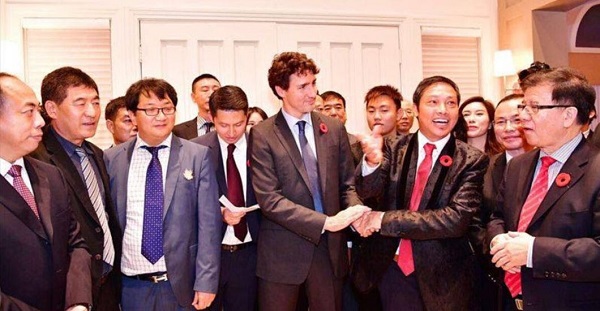International
Trump Calls For RFK Jr. To Receive Secret Service Protection

 From the Daily Caller News Foundation
From the Daily Caller News Foundation
Former President Donald Trump said on Monday that independent presidential candidate Robert F. Kennedy Jr. should receive Secret Service protection “immediately.”
Trump made the call on Truth Social for the presidential opponent following a failed attempt on his life at a rally in Butler County, Pennsylvania, on Saturday that left one attendee dead and two seriously injured. The Department of Homeland Security (DHS) has previously denied Kennedy’s request for Secret Service protection six times, leading his campaign to spend millions on private security, a Kennedy staffer told National Review.
“In light of what is going on in the world today, I believe it is imperative that Robert F. Kennedy Jr. receive Secret Service protection — immediately,” the former president wrote. “Given the history of the Kennedy Family, this is the obvious right thing to do!”
Both Kennedy’s father, Robert Kennedy, and his uncle, former President John F. Kennedy, were assassinated.
The Kennedy campaign filed a fresh request for protection in early June, a security consultant working for the campaign told Politico.
“DHS has received the request for protection and will review it with due consideration,” a DHS spokesperson said Sunday, according to Politico. “The review process relies on a thorough Secret Service threat assessment and a recommendation from a bipartisan Congressional Advisory Committee. Ultimately, based on that assessment and the recommendation of the advisory committee, the Secretary makes a determination.”
A bipartisan group of House members announced on Sunday that they plan to file legislation to enhance Secret Service protections for Trump and Biden while also providing a security detail for Kennedy, Axios reported. Though enhanced security has bipartisan support now, House Democrats introduced in April legislation that would have stripped Trump of his Secret Service protection due to his felony convictions.
The Secret Service will give closed-door briefings to lawmakers in the coming days, Politico reported Monday. Republican House Speaker Mike Johnson of Louisiana pledged on Saturday that the House will conduct a “full investigation” of the assassination attempt.
The Kennedy campaign and DHS did not immediately respond to the Daily Caller News Foundation’s requests for comment.
Business
Mark Carney’s Misleading Actions and Non-Disclosure Should Disqualify Him as Canada’s Next Truly “Elected” Prime Minister – Jim Warren
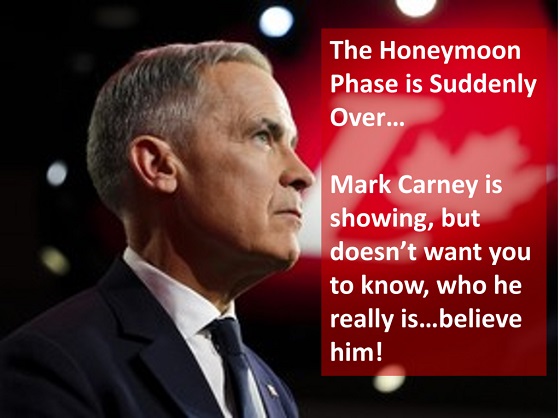
From EnergyNow.Ca
By Jim Warren
If Mark Carney simply told the truth, he wouldn’t have to remember if what he says in Quebec matches what he says in Western Canada.
When speaking in Kelowna on February 12, Mark Carney left the impression he’d been converted from environmental zealot to missionary for an Energy East pipeline.
Carney said he would “use all of the powers of the federal government, including the emergency powers of the federal government, to accelerate the major projects that we need in order to build this economy and take on the Americans.”
Five days later Carney told CBC those emergency powers wouldn’t apply to Quebec. The government of Quebec would have veto power over any pipeline to the east coast. To clear up any possible confusion he repeated his pipeline veto pledge to Quebec at the French debate for the Liberal Leadership.
Apparently tough measures like the “peace, order and good government” clause in the Constitution and the Emergencies Act can be used by Liberals to arrest and seize the bank accounts of truckers who honk horns and cause traffic jams in Ottawa. But they can’t be used to build pipelines across Quebec even if it will reduce the impact of US tariffs on Canada’s economy. Like any good Liberal, Carney knows the interests of Maritimers and the West are of little consequence when his party needs to boost its support in Quebec.
Ironically, the second national poll in the past few months shows a majority of Quebecers support the construction of an East/West pipeline through their province. It is the Central Canadian political elite based in the major cities of Ontario and Quebec and excessively zealous environmental activists who oppose pipelines. And the Liberals are, of course, the party which represents that environmentally sanctimonious elite.
You read it here first.
On January 28, EnergyNow ran a column with the headline: Trump’s Wake-up Call to Canada, Politicians & Activists… The column outlined how the “peace, order and good government’” clause in the Constitution and/or the Emergencies Act could be employed to override regulatory barriers and court injunctions to ensure new pipelines to tidewater are built. The column says the first step in that process will be booting the Liberals from office. That condition still applies, given that Carney’s one-time mention of using “emergency powers” in support of a West to East pipeline turned out to be just one more Liberal lie to Western Canada.
Pierre Poilievre has aptly pegged Mark Carney as a hypocrite whose corporate interests and behavior are in substantial conflict with his environmental virtue signaling. At a House of Commons committee hearing in 2021, Poilievre spanked Carney for supporting the cancellation of the Energy East pipeline, while Brookfield Asset Management, the company he chaired, had bought pipelines in Brazil and the United Arab Emirates.
Poilievre admonished Carney, “You make billions of dollars off foreign pipelines and you shut them down here at home, putting our people out of work.”
More recently Carney misled Canadians about the role he played in moving Brookfield’s head office from Canada to the US. Carney claimed he had absolutely nothing to do with the move despite the fact he was company chairman at the time.
No less egregious is the fact Carney has used a loophole in federal legislation to avoid the financial disclosure rules for cabinet ministers including the prime minister. The disclosure rules help Parliament determine when ministers are involved in conflicts of interest. Carney will soon be crowned prime minister by the Liberals and will technically be exempt from the rule.
Carney is technically exempt because he’s never been elected as an MP. He will be able to avoid making his financial disclosure until 60 days after he is appointed prime minster. This means there is a good chance Carney’s financial information won’t be available well into the run up to a possible spring election.
Poilievre rang the alarm regarding the loophole and plans to introduce legislation as soon as Parliament reopens to fix the problem. He pointed out that there was nothing preventing Carney from being transparent and voluntarily providing the necessary information to Canadians prior to the Liberal leadership vote.
Poilevre was being too kind. A lack of integrity is what’s holding Carney back.
Carney is on record as a firm believer in carbon taxes. In the book he published in 2023 he wrote, “Meaningful carbon prices are the cornerstone of any effective [environmental] policy framework.”
Now, in support of his campaign to become prime minister, Carney promises to get rid of Canada’s unpopular carbon tax. The claim is clearly deceptive. He intends to replace the current tax on consumers with an upstream tax on oil producers and industry. Carney must think Canadians are too dumb to realize the increased upstream tax burden will be passed on to consumers in the form of higher prices for virtually everything they purchase.
When Carney is pressed to explain his carbon tax 2.0, he mumbles his way through an incomprehensible word salad worthy of Kamala Harris.
Also like Harris, Carney avoids campaign events where non-supporters might show up or media appearances and interviews where he might be asked a tough question. His appearance on US late night talk shows hosted by uber-liberals like Jon Stewart are unlikely to generate hard ball questions—the hosts are ignorant about Canadian politics and wouldn’t have a clue about what to ask.
I think Carney knows how bad the Kamala campaign tactics look. He was clearly taken aback by an incident at a campaign event in Regina. A member of the Liberal party who was somehow identified as a closet Conservative was accosted by two security agents and police who ejected him from the meeting. The guy had done nothing untoward—he hadn’t so much as raised his voice. It seems Mark Carney is very precious and must be protected from the public– including Liberal party members who are potentially dangerous because they supported another party in the past.
Where Carney really stands on environmental issues
Mark Carney didn’t just drink the climate alarmist Kool-Aid, he helped make it and wants to serve it to you.
“He’s the father of net-zero on a global basis,” according to Catherine Swift, President of the Canadian Coalition of Concerned Manufacturers and Businesses of Canada.
Carney has been a steadfast supporter of the environmental dogma underlying the Liberal assault on the fortunes of the oil and gas industries including the legislation preventing new pipelines. For years now, he’s been working on the inside of international organizations dedicated to climate change mitigation and greenhouse gas (GHG) emissions reduction.
In December 2019, he was appointed as the very first UN Special Envoy for Climate Action and Finance.
Prior to, during and after his time at the UN Carney has found time to hobnob with the billionaires and national leaders who presumably constitute the global elite. He’s been a regular at the annual World Economic Forum conferences in Davos, Switzerland.
As a member of the forum’s Foundation Board he is a duly qualified member of the modern day Illuminati. He associates with the international bankers who presume to know what’s best for the little people. His promotion of the radical green agenda dovetails nicely with the environmental virtue signaling of the world’s rich and powerful at Davos. They are dedicated to conquering global warming no matter what it costs the rest of us.
At the COP26 conference in 2021 Carney proudly proclaimed he was part of the same social movement as Greta Thunberg. Carney praised Thunberg as the “catalyst” who inspired the youth wing of the environmental movement. I haven’t heard if he’s gone off Greta and her wing of the movement now that she has announced her support for Hamas.
Don Braid recently wrote an insightful column in the Calgary Herald where he proposes that Carney is too deeply embedded in environmental activism and too publicly committed to climate change mitigation and the anti-oil agenda to run away from it when he becomes prime minister. Braid reports what Carney had to say about the environment and the need to abandon natural gas and petroleum in the 600 page door-stopper book he published in 2021, Value(s): Building a Better World for All.
In 2021, Carney was deluded enough to imagine the world’s virtuous emissions cutters would prevent the planet’s average temperature in 2050 from being any higher than 1.5O above what it was in the middle of the 19th century.
Not even serious climate change alarmists like Gwynne Dyer believe that’s remotely possible. The goals of climate zealots like Carney include fanciful, overly ambitious emissions reduction targets. They want change to happen too fast to be affordable for virtually everyone except the sorts of people who hang out at Davos.
In his book, Carney identifies what he believes should happen to the fossil fuel industries. His goals don’t bode well for the future of Canada’s petroleum and gas sectors and can’t help but harm the country’s economy.
Carney writes, “To meet the 1.5o C target, more than 80 per cent of current fossil fuel reserves (including three-quarters of coal, half of gas, one-third of oil)” will need to “stay in the ground, stranding these assets.”
Steven Guilbeault, Canada’s most infamous and politically dangerous environmental extremist backed Carney in the Liberal leadership contest. Guilbeault’s support is in recognition of Carney’s radical record on environmental issues including climate change mitigation.
Nothing to say about Liberal corruption
One of the most disturbing omissions from Carney’s political platform and media coverage of his campaign is any mention of plans for dealing with runaway Liberal cronyism and corruption.
He hasn’t promised to open the books and jail the crooks. He hasn’t promised to release the unredacted evidence of Green Slush Fund corruption. He hasn’t promised to release that evidence and turn it over to Parliament and the RCMP. He hasn’t announced plans for a thorough forensic accounting of Liberal backroom deals. And he hasn’t promised investigations into sweetheart contracts and looting in cases like the ArriveCAN scam.
He can’t do any of the above because it would implicate a number of Liberal insiders and he needed them to support him in the leadership contest. And how will he be able to work with the government caucus if he suggests he wants to get tough with the hogs at the trough? Given that he won’t release his financial information, it could be he doesn’t want to limit his own access to the gravy train.
In the final analysis, you’d have to say Mark Carney is a committed environmental zealot except when it interferes with his business interests or political ambitions.
He appears comfortable giving preference to the environmental extremism of the Davos set over the harm overly zealous climate change policies do to the livelihoods of ordinary Canadians and the country’s economy.
He appears comfortable with hypocrisy and misleading Canadians which clearly qualifies him to lead the Liberal party, but makes for a bad prime minister.
Daily Caller
Energy Sec Slams Biden Admin Climate Obsession, Lays Out Trump Admin’s Pivot In Keynote Houston Speech
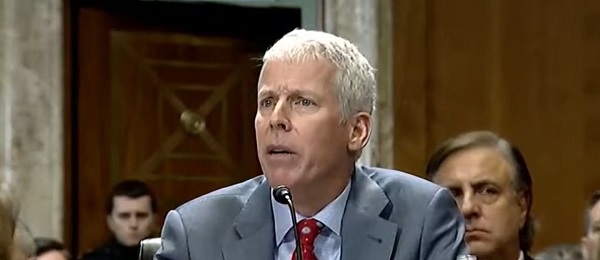

From the Daily Caller News Foundation
By Nick Pope
“The Trump administration will end the Biden administration’s irrational, quasi-religious policies on climate change that imposed endless sacrifices on our citizens.”
Energy Secretary Chris Wright sharply criticized the Biden administration’s restrictive energy policies during a keynote speech to energy industry leaders Monday, explaining how the Trump administration’s approach is oriented around unlocking human flourishing.
Wright made the speech to kick off the 2025 CERAWeek conference, one of the premier annual summits for the energy industry. He characterized the Biden administration’s maniacal focus on climate change as counterproductive and impoverishing for ordinary people, pledging to take a radically different approach than his predecessor by unleashing U.S. energy and private sector innovations to make life better and more affordable for Americans, announcing that he is approving a liquefied natural gas (LNG) permit during the speech to prove his point.
“The previous administration’s ‘climate’ policies have been impoverishing to our citizens, economically destructive to our businesses, and politically polarizing. The ‘cure’ was far more destructive than the disease,” Wright said. “There are no winners in that world, except for politicians and rapidly growing interest groups. The only interest group that we are concerned with is the American people. Our focus will be steadfast on the American people and our allies abroad.”
Dear Readers:
As a nonprofit, we are dependent on the generosity of our readers.
Please consider making a small donation of any amount here.
Thank you!
Wright explained how much of the world’s population lives in poverty in large part because they do not have access to the cheap, efficient energy that powers modern life and its conveniences that only a fraction of humanity enjoys at present. The new energy secretary — who has worked with nuclear, oil, gas, solar and geothermal energy over the course of his private sector career — argued that the U.S. can and should play a leading role in proliferating prosperity with energy instead of regulating the sector too aggressively in the name of climate change.
“Recently I have been called a climate denier or climate skeptic. This is simply wrong. I am a climate realist. I have been studying and writing about climate change for over twenty years. The Trump administration will treat climate change for what it is: a global physical phenomenon that is a side-effect of building the modern world,” Wright said. “We have indeed raised atmospheric CO2 concentration by 50% in the process of more than doubling human life expectancy, lifting most of the world’s citizens out of grinding poverty, launching modern medicine, telecommunications, planes, trains and automobiles too. Everything in life involves trade offs. Everything.”
“The Trump administration will end the Biden administration’s irrational, quasi-religious policies on climate change that imposed endless sacrifices on our citizens. Running the math on what might have been the benefits from these policies yields perhaps only a few hundredths of a degree reduction in global temperatures in the year 2100,” Wright continued. “The Trump administration intends to be much more scientific and mathematically literate.”
While former President Joe Biden said that climate change poses a threat to humanity that exceeds that presented by nuclear war, Wright’s remarks make clear that the Trump administration will not be treating climate change as an existential threat that takes precedence over other priorities.
The vision Wright laid out in his speech represents a stark departure from the positions of the Biden administration on nearly all fronts, including on the issue of approvals for LNG export projects. The Biden administration unilaterally froze approvals in January 2024, keeping the pause in place for most of the year, in what critics characterized as an election year move to shore up support from the well-funded climate lobby.
To drive home his point that American energy is open for business with the Trump administration leading in Washington, Wright announced that he will be approving a LNG permit extension for the Delfin LNG project, a major development proposed for construction off the Louisiana coast and a victim of the Biden administration’s January 2024 freeze on approvals.
“I am honored to play a role in reversing what I believe has been a very poor direction in energy policy. The previous administration’s energy policy was focused myopically on climate change, with people as simply collateral damage. My predecessor was on this stage one year ago saying that LNG exports would soon be in the rear view mirror. Think about that for a moment,” Wright said during his speech. “Natural gas today supplies 25% of global primary energy and has been the fastest growing source of energy over the last 15 years. Wind and solar, the darlings of the last administration and so much of the world today, supply roughly 3% of global primary energy … Everywhere wind and solar penetration have increased significantly, prices on the grid went up and stability of the grid went down.”
-
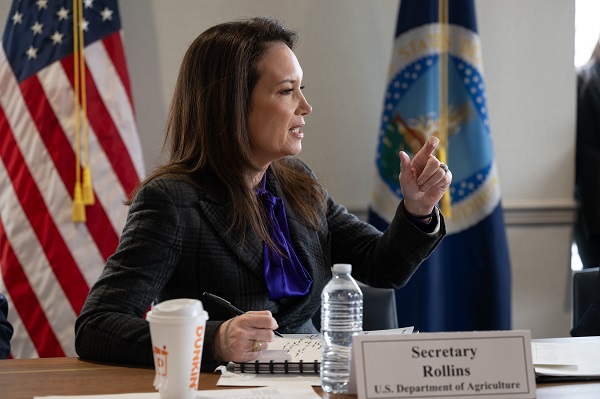
 Business2 days ago
Business2 days ago“The insanity is ending”: USDA cancels $600k grant to study transgender men’s menstruation
-
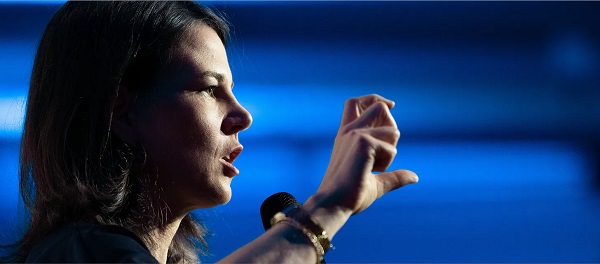
 International20 hours ago
International20 hours agoIs Russia at War With Ukraine, or With the West?
-

 Business12 hours ago
Business12 hours agoCarney must scrap carbon tax immediately
-
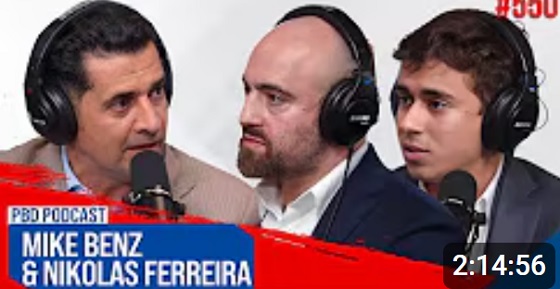
 Censorship Industrial Complex1 day ago
Censorship Industrial Complex1 day agoHow America is interfering in Brazil and why that matters everywhere. An information drop about USAID
-
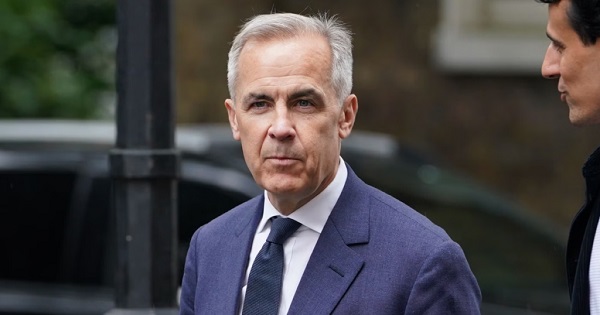
 Fraser Institute12 hours ago
Fraser Institute12 hours agoNew Prime Minister Carney’s Fiscal Math Doesn’t Add Up
-

 Business1 day ago
Business1 day agoReport: $128 million in federal grants spent on gender ideology
-

 Business12 hours ago
Business12 hours agoTime to unplug Ottawa’s EV sales mandates
-

 Daily Caller10 hours ago
Daily Caller10 hours agoEnergy Sec Slams Biden Admin Climate Obsession, Lays Out Trump Admin’s Pivot In Keynote Houston Speech
